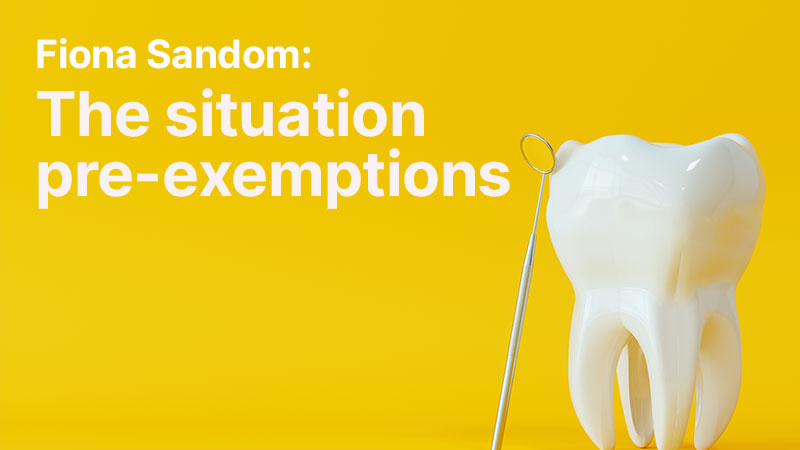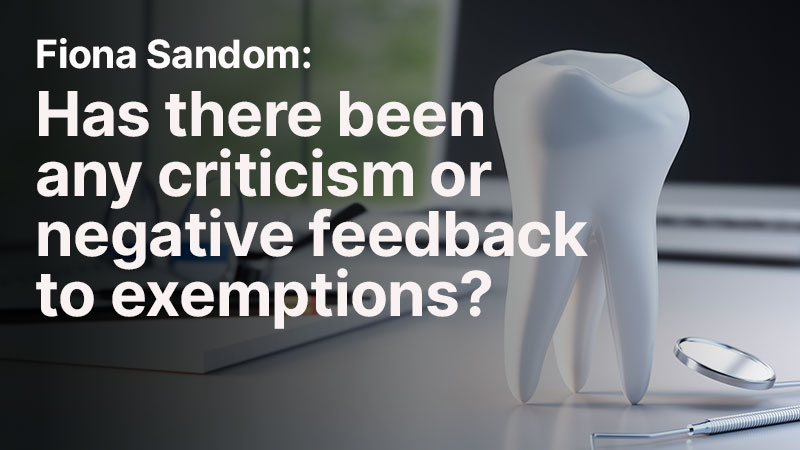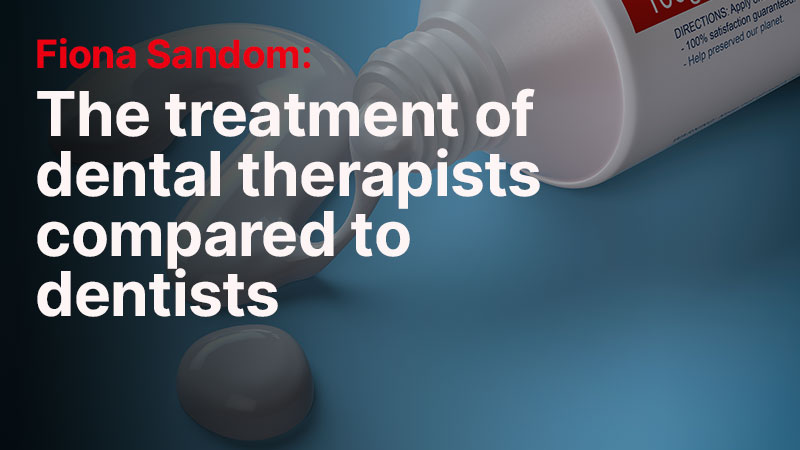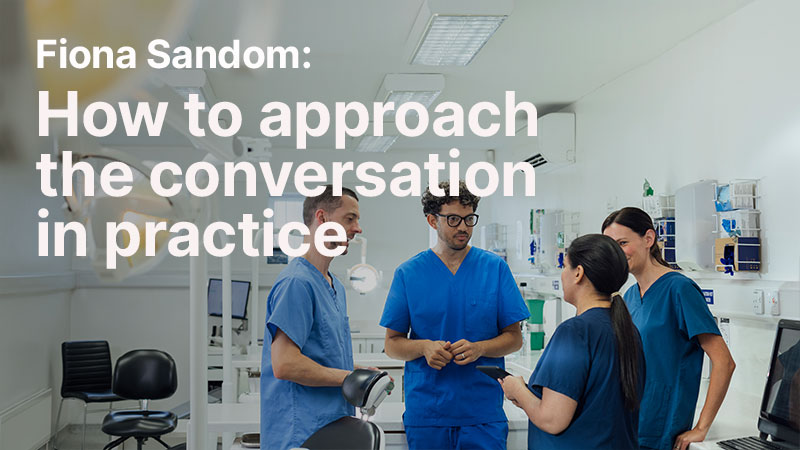One of the things that's stressed in all the, um, the press release from the GDC and in all
the conversations about it is the need for training, making sure that skills are up to
date though, because I know a lot of therapy.
A lot of the problems therapists added when they were working only as hygienists,
they felt that they were de-skilled and they're worried about that.
So even though there was the the.
The um qualifications there, how important is it that therapists,
um, What was the right way to phrase it, that they update their training or they make sure
that they are back on, on point in that.
Yeah, so. It's a number of different things.
So first of all, if um if you're doing direct access, you should at least be,
you know, have your skills up to date and part of your CPD.
So, you know, I know there are a number of education and training courses out there,
um, especially within um.
Health educate, you know, all the, what were deaneries.
I'll call them deaneries because we kind of know what they are,
and they've all had new names now.
The deaneries are doing lots of education in terms of direct access,
opening courses of treatment, things like that, so you can upskill there.
For the exemptions training, it's really clear, it's not about giving the local anaesthetic.
OK, we can do that. If you haven't given local anaesthetic for a
while and feel you've deskilled, then you need to find yourself some upskilling education.
You know, some just, just reaffirming and um you know,
there's lots of great courses out there as well to sort of get back those skills if you,
you haven't been using local.
In terms of the education of regarding exemptions, it is about your legal requirements
to use the mechanism.
So, um, making sure that you understand the legalities around the exemption mechanism,
understanding your responsibilities if you're supplying a medicine,
understanding about the patient consultation.
The shared decision making, you know, which local anaesthetic to use and talking with it
through with the patient, things like that, and making sure you make the appropriate notes.
So it's not about pharmacology, it's not about the physical act of,
of supplying and administering these medicines. It's about the administration,
the governance, um, around that, and that education needs to be completed.
Um, I know that there is a move to get this into the undergraduate curriculum as soon as
possible. So hopefully our newly qualified hygienist and
therapists will come out with that with that ability.
So, I also am, I'm reasonably aware that the training and education won't be there forever.
It's a short term kind of need. So those people that want to need the training,
um, should access it, you know, as soon as, as practical.
Um, I also am aware that the NHS e-education and training,
so the exemption training for England has been held up a little bit,
and they're looking to get that um out around about the end of November.
In Wales, Scotland and Northern Ireland, the three deaneries,
because the populations are quite small, have joined together to deliver the education and
training, and I know that that first lot of education goes out,
um. On the 6th of September and then there are
further dates. I think there's another 4 or 5 dates throughout
the year for people um in England, Scotland, Northern Ireland and Wales to join,
um, for their education and training, and they can do that via their their normal website,
so for Wales, it's the HEIW.
Um, learning platform for Scotland, it's the uh the the Nest one and for Northern Ireland it's
the NMDA one. But if anybody, you know, needs to get in touch,
um, and they, they're concerned or anything, they can always email me at chair at BAT.org.uk
um and I'll point them in the right direction.
Fiona Sandom: Ensuring you are adequately trained
16 June 2025
Dental therapist, dental educator and past president of the BADT, Fiona Sandom, discusses the importance of keeping your skills and training up to date for dental hygienists and dental therapists.




